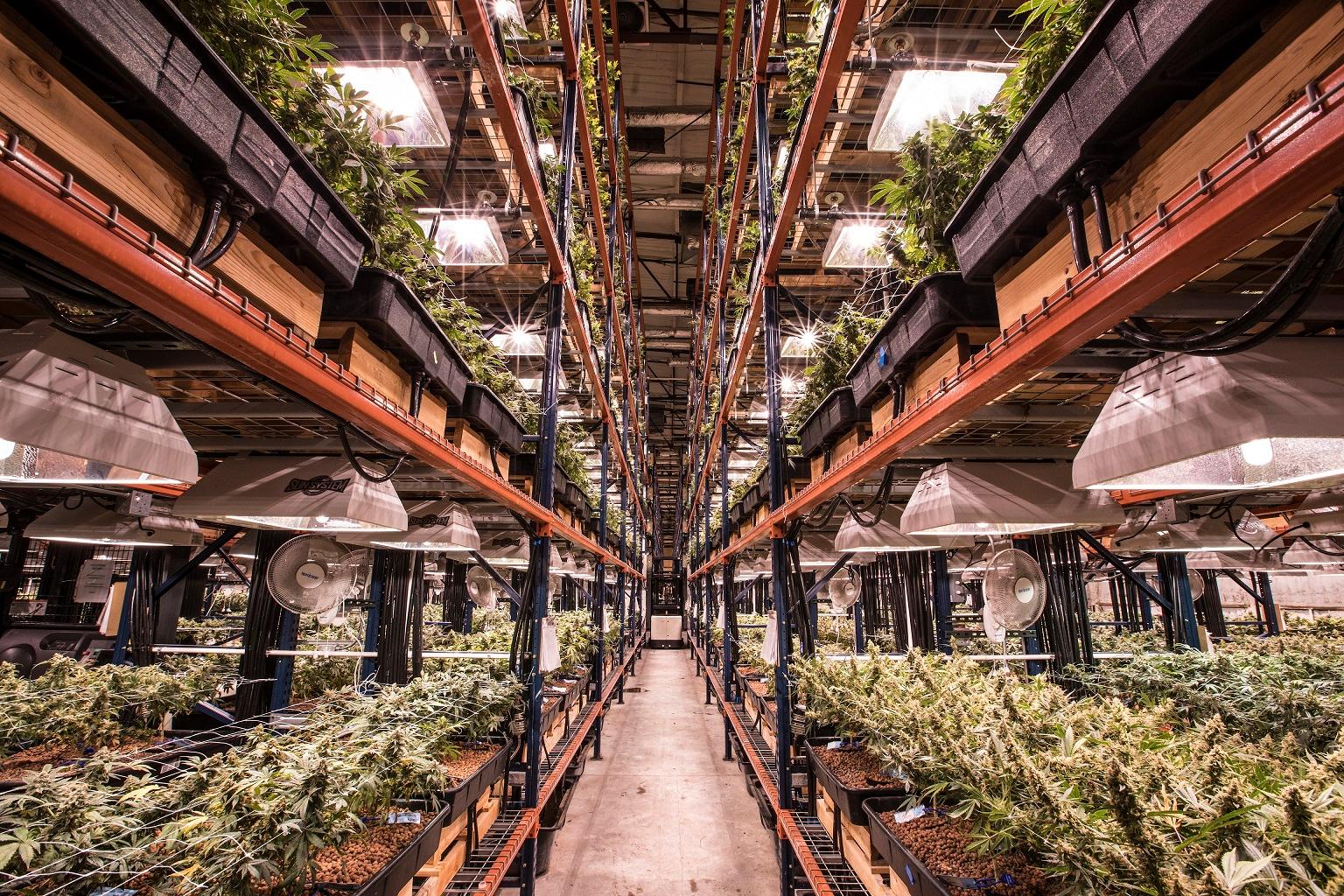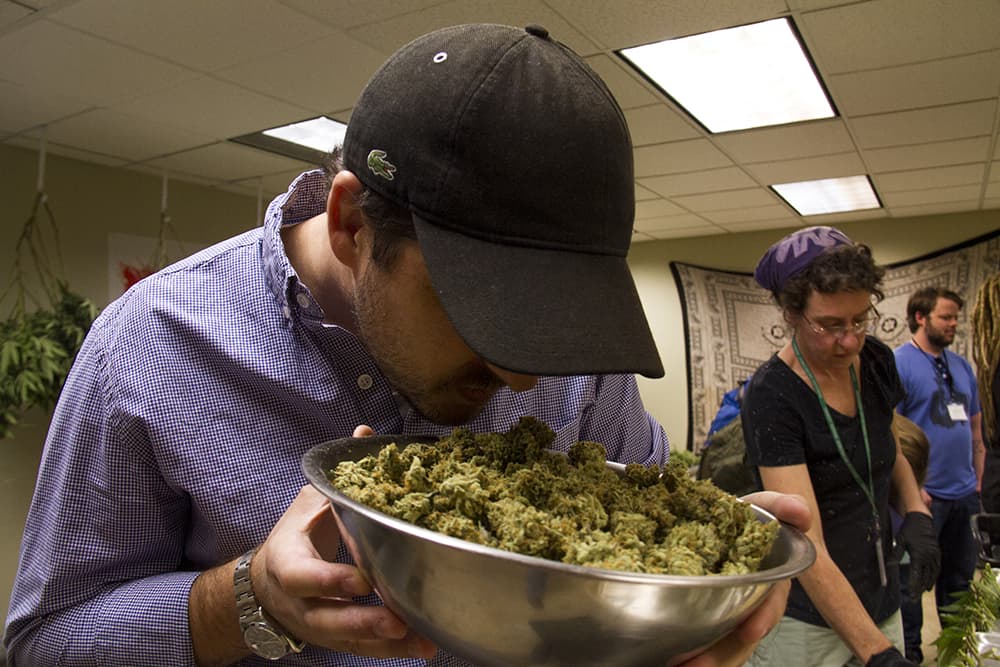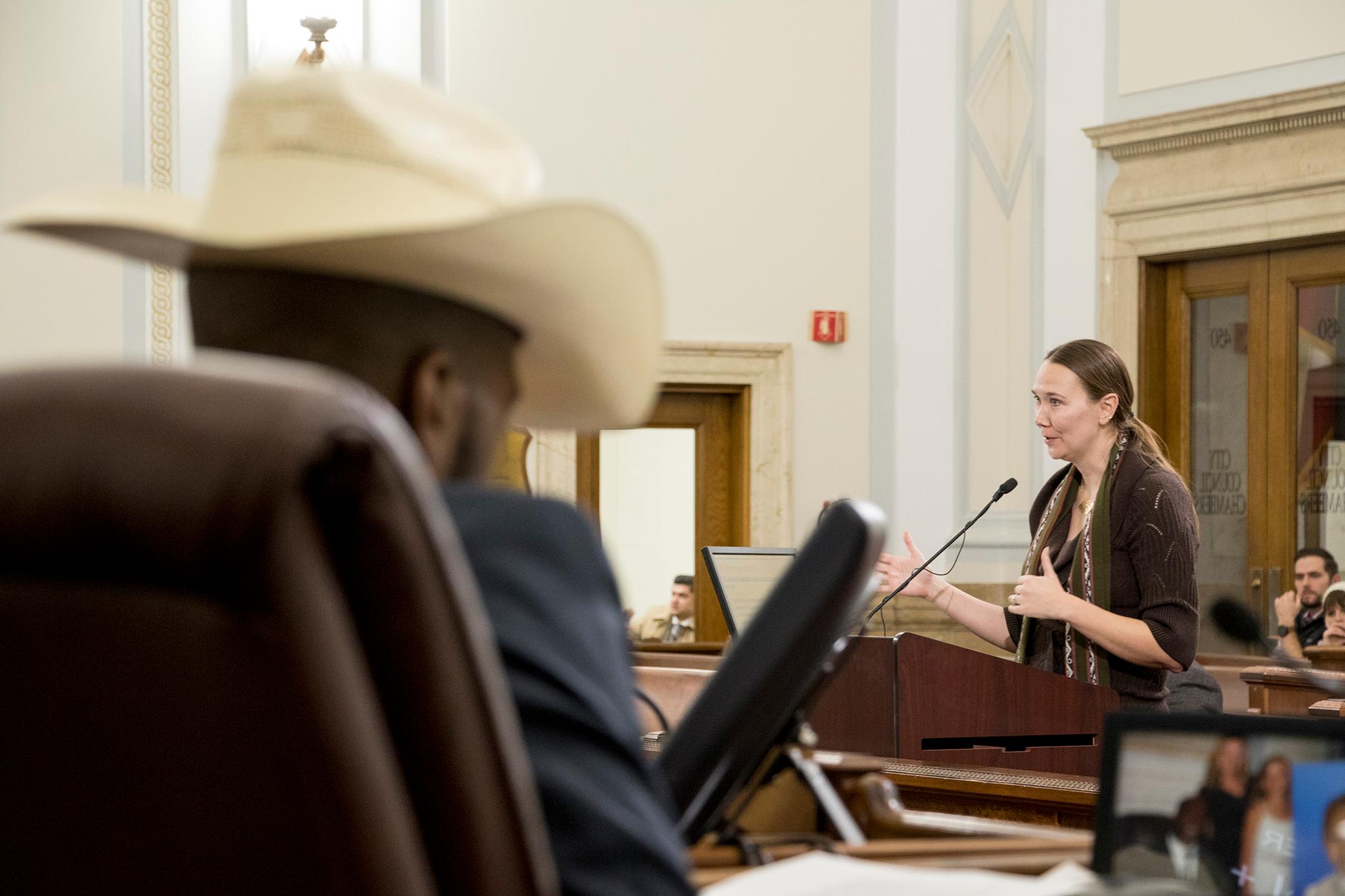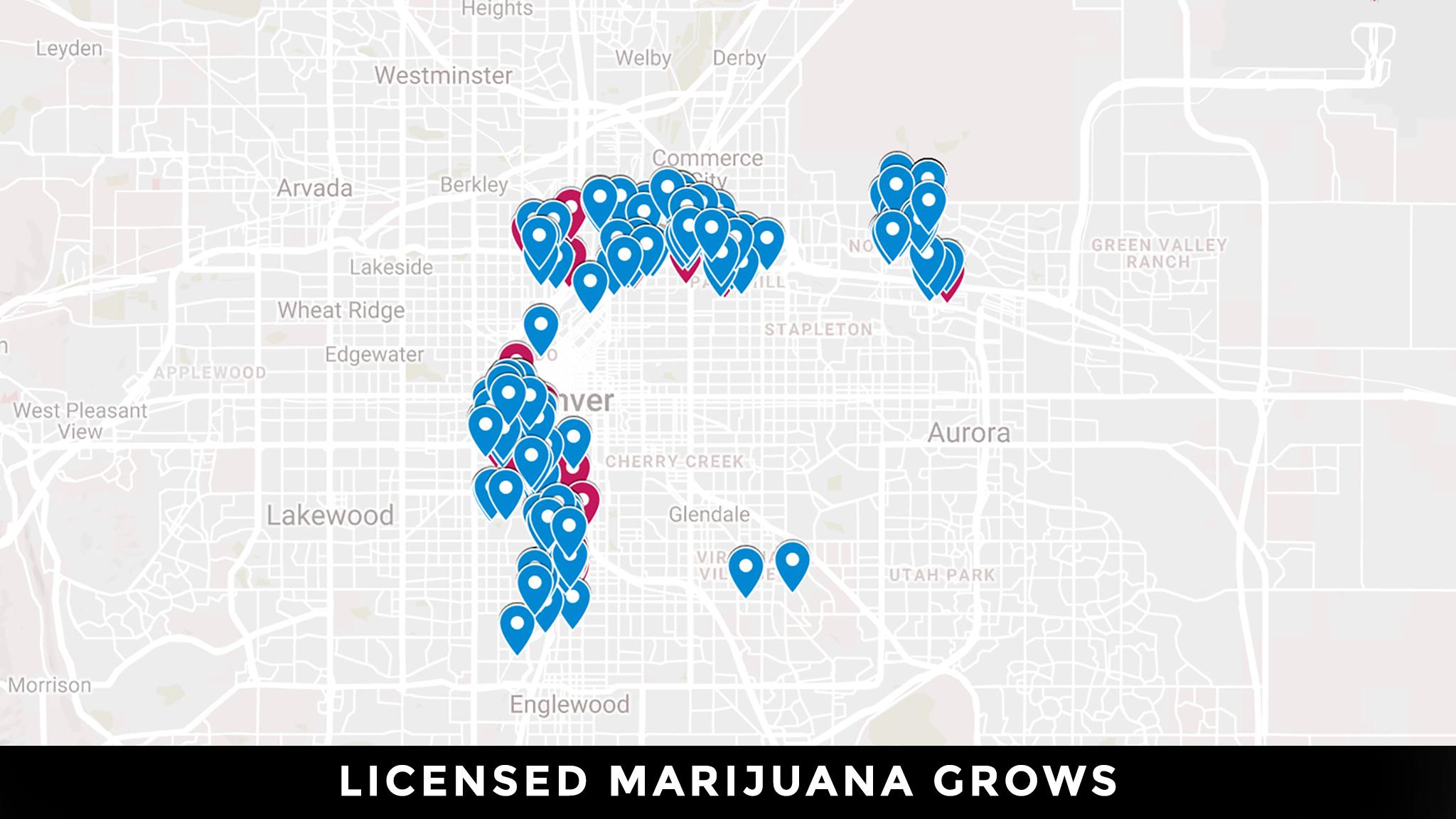The industrial racks rise 25 feet inside a colossal warehouse in Elyria Swansea. Towering, narrow rows of them are crowded with sprouting green plants and skinny little upright vines sitting on large black containers.
These are marijuana plants, and they take about 18 weeks to grow before they're ready to harvest, according to Green Solution general manager Kevin McDermott. This 55,000 square-foot, former steel mill site is now the cannabis company's largest growing facility. The noisy warehouse is also used to process and package marijuana.
"The general question that people ask is how quickly after it's dried can it end up in the store, and it could be as quick as two days," McDermott said, standing next to a small conveyor belt sending marijuana buds down a line to be trimmed. "Not typically the case, but it can be."
The warehouse is one of 249 registered marijuana growing facilities in Denver. Those facilities have 413 cultivation licenses, according to the Denver Department of Excise and Licenses; the number is larger because some facilities are licensed to grow recreational and medicinal marijuana.
Medical and retail growing facilities are restricted to certain areas in the city. They are only allowed in areas primarily zoned industrial, which is why you’ll find most of them near highways and around railroad tracks. There are additional zoning restrictions; for example, they can’t be within 1,000 feet of any school.
“There are businesses that all they do is grow and they supply to retailers,” said Eric Escudero, spokesperson for the city’s business licensing department. “And so there is a chain that goes through as far as growing, but some have the same ownership, some will have a grow and some will have a retail (shop), some have both.”

McDermott said the site in north Denver tries to harvest close to 300 pounds of marijuana weekly. It's allowed to have up to 49,800 plants, but McDermott said they usually hover around 47,000 to 48,000. Each plant has a tag with a serial number allowing the state's marijuana enforcement agency to track them.
The process of getting a grow license can be long. And expensive.
It costs $5,000 for fees associated with a retail cultivation license in Denver, while the state charges additional fees. That five grand includes a $2,000 application fee and a $3,000 license fee.
The process includes inspections, which Escudero said often involves months-long delays from applicants who want more time to make sure they're following regulations. And there are state and local laws that need to be complied with for them to operate.
"Unfortunately, it is complicated," Escudero said.
Green Solution CEO Steve Lopez said he wasn't a part of the licensing process for the company's growing facilities, but that Denver's process has become more and more customer-friendly every year. He said 90 percent of products sold in their retail shops come from marijuana grown at their facilities.

"This was a whole new industry and they moved very quickly," Lopez said. "Everybody was doing the best they could at the very beginning ... you're talking about a highly-regulated product from seed to sale that has to be monitored from every stage of growth."
The city law only allows up 311 cultivation locations, Escudero said. He said the number of locations could be increased "soon" after the department completes the review for pending grow applications. That means there may be new locations available.
The placement of grows can cause discomfort and reveal equity issues.
Escudero said the odor from growing facilities is a common concern for grows, as well as them being concentrated in some areas of the city over others -- a concern made clear when the locations are mapped.
"So those are things that we're always looking at and making sure that whatever the future of the marijuana industry is in Denver, we want to make sure it's in the best interest of our community," Escudero said.
Nola Miguel, director of the Globeville Elyria Swansea Coalition Organizing for Health and Housing Justice, has been an advocate for health and anti-displacement improvements in the neighborhood. It's an area that has a history of environmental issues due to its proximity to industrial areas and I-70.
"We went through a lot of different stages of feelings about the marijuana industry overall because there's a lot of neighbors that wanted legalization in the more of the decriminalization aspects and potential for industry that the neighborhood could benefit from," Miguel said.
Miguel said they were immediately vocal once it became clear that Elyria Swansea seemed to be getting what advocates saw as a disproportionate amount of retail and growing facilities. There were and are concerns about young people being predisposed to marijuana smells; other people told her the constant odor caused some people to want to use more.
And while many neighbors sought more connection between those businesses and locals, she said this connection largely hasn't materialized.

McDermott said the big warehouse has a special venting system to prevent smells from escaping.
"We take a lot of precautions within the building and the air filtration system here to make sure that we're compliant with that," he said.
There wasn't much of an odor in the parking lot outside the warehouse. The area directly around it didn't receive any formal complaints about marijuana smells in the last four years, though the odor was the second most common smell complaint citywide, according to the city's public health department.
Escudero said the city has hired a firm to create a report on marijuana licenses providing information on what the marijuana industry looks like in Denver. It will also help the city determine whether it will adopt a state law passed last year allowing for tasting-room like additions to dispensaries allowing people to smoke inside.
Miguel said they're approaching issues around grows through an anti-displacement lens. Some businesses have shown up to local meetings and made an effort to reach out, but she's interested in a stronger relationship between the two that includes a focus on housing. A chunk of money from marijuana sales tax is used for affordable housing. The industry brought in $46.8 million in tax and licensing fee revenue in 2018, according to figures from the city, which is about 3.5 percent of the city's general fund revenue.
"We would love to have that closer connection instead of (tax money) sort of getting redistributed through the affordable housing fund," Miguel said. "But why not directly impact the house that's down the street?"













